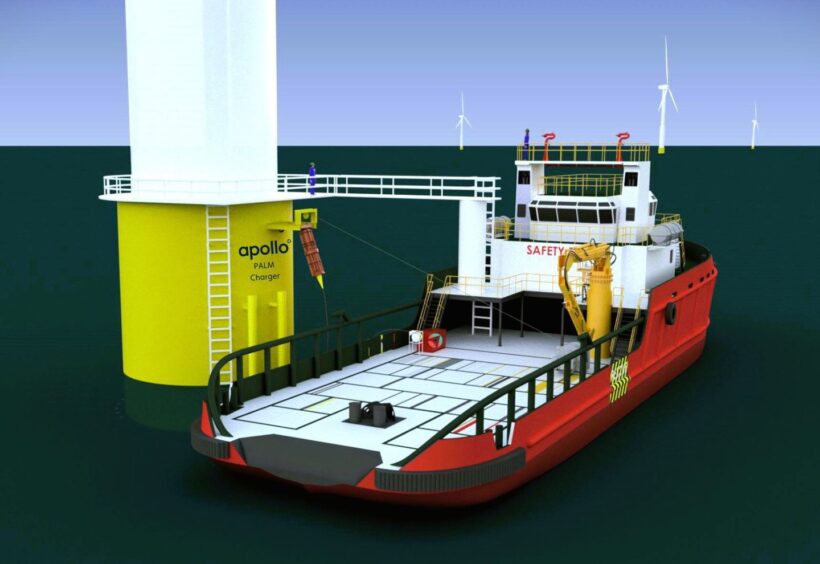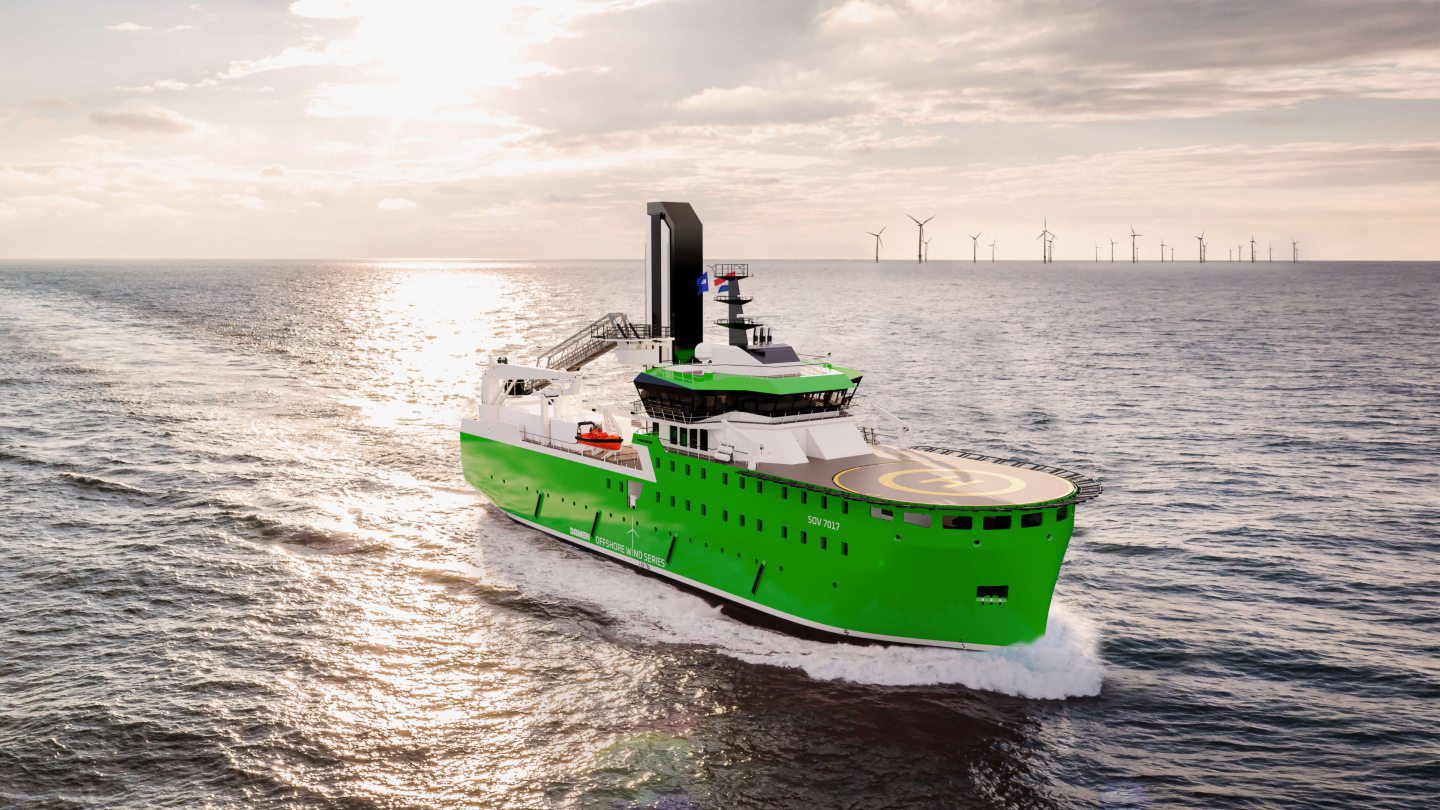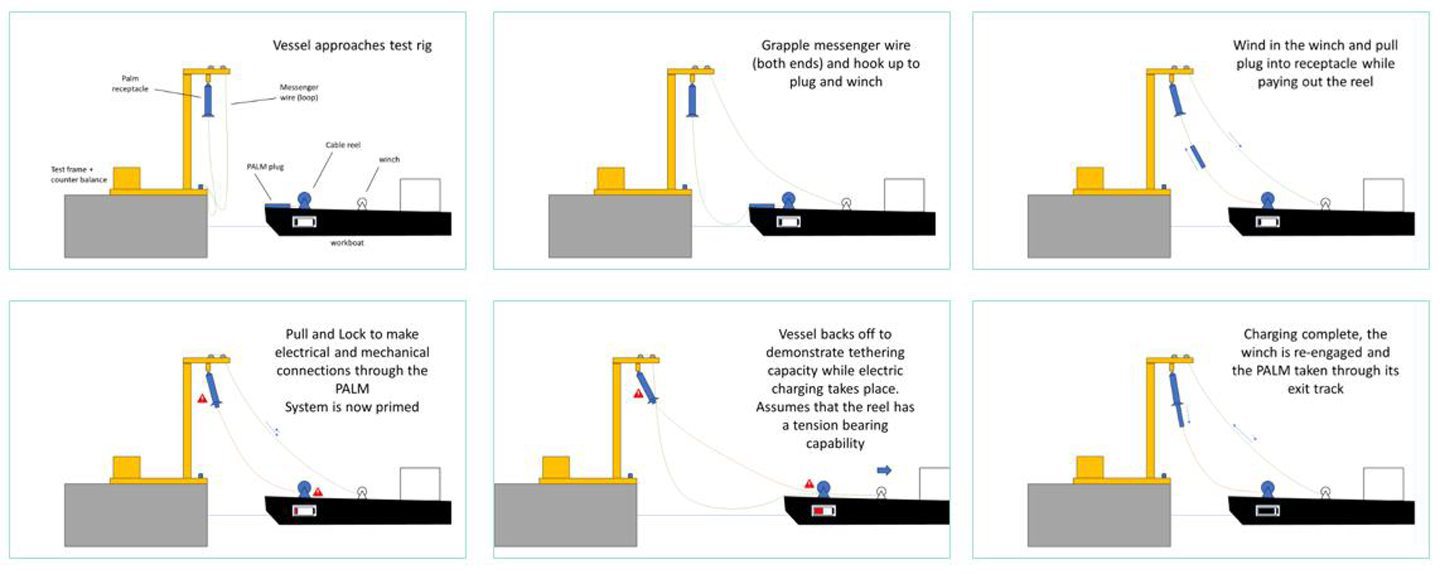
A consortium led by Aberdeen’s Apollo Engineering has won nearly £800,000 in UK government funding to test a charging system for electric service vessels which can be connected to offshore wind turbines.
Apollo’s PALM Charger concept will undergo 14 days of offshore testing at a test rig moored off the coast of Orkney.
Apollo said the connection operation is “swift and rugged” and requires minimal bespoke outfitting, no active control systems and no personnel transfer.
Offshore wind developers are increasingly looking at deploying marine electric vessels (EVs) to support construction and operations in an effort to decarbonise their operations.
However, as offshore wind projects move into deeper waters further from away from the coast the ability to deploy fully electric service vessels is limited by their range and charging capacity.
Apollo said providing an option to recharge in the field allows marine EV operators to extend their range, increasing the workability of vessels that might otherwise be confined to short journeys to and from shore
Successfully commercialising the PALM Charger concept could promote increased use of low-carbon vessels, facilitating the overall decarbonisation of the fleet, Apollo said.
EV charging ‘crucial’ for Scotwind
Apollo said this technology will become particularly crucial for upcoming offshore wind projects included in the fourth allocation round, ScotWind, INTOG and in the Celtic Sea.
The company has identified around 20 to 40 future wind farms where the technology could be deployed to facilitate continuous offshore EV operations through the construction phase.
Apollo offshore renewables director Nigel Robinson told Energy Voice the company is delighted to be kicking off the test project alongside Orkney-based partners Leask Marine and the European Marine Energy Centre.
“The PALM Charger has great potential as a practical, rugged method of recharging marine vessels offshore, and the trials will really help prove it as a commercial product,” Mr Robinson said.
“We’re looking forward to working at the Scapa Flow test site in August, which is ideal for putting the system through its paces.”
After completing the trial, Apollo said it will move into a commercialisation phase to prepare a prototype for a pilot deployment.
While the concept is initially being targeted at offshore wind developers, Apollo said the technology could also be rolled out in the fishing, aquaculture and pleasure craft sectors.
The UK government is providing approximately £780,000 in funding support for the testing phase through round four of the Clean Maritime Demonstration Competition, administered by the Department of Transport and Innovate UK.
Recommended for you


 © Supplied by Damen
© Supplied by Damen © Supplied by Apollo Engineering
© Supplied by Apollo Engineering © Supplied by Apollo Engineering
© Supplied by Apollo Engineering